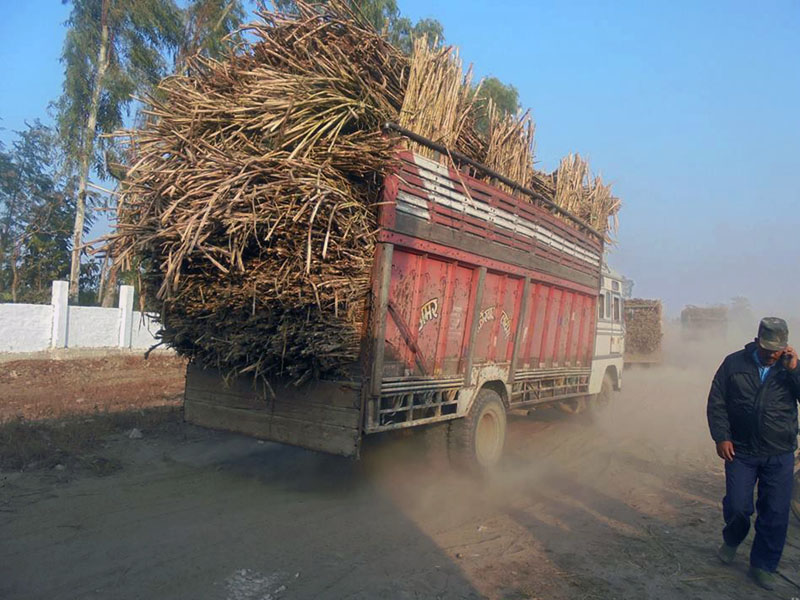Difficulty managing illegal sugar consumption in Dhangadhi
DHANGADI: Sudurpashcim Province needs about 24,000 tonnes of sugar annually of which about 20 percent is brought in the region legally while the remaining 80 percent flows in illegally via various border points.
Due to this, ministers and administrators of the province -- who are responsible for controlling illegal activities in the region -- are also consuming illegal sugar. More than 1,000 quintals of sugar are smuggled from various illegal routes from Satti in Kailali to Brahmadev in Kanchanpur.
Among the most pressing issues, sugar in large quantities is smuggled in vehicles ranging bicycles to trucks. As it is easy to smuggle the daily commodity through illegal routes, traders refrain from importing sugar legally by paying customs duty. The government is also losing millions of rupees annually in revenue due to the illegal import of sugar.
"While monitoring the market in Sudurpashcim Province, no trader was found possessing the VAT bill," said Keshav Raj Pandey, regional head of the Salt Trading Corporation.
There are more than 200 women carrying sugar on bicycles from the gate of Trinagar customs of Kailali district.
Pandey added that they did a market study after the Trading Corporation's sugar could not be sold as expected. Kailali customs officer, Gopi Krishna Upreti, claimed that customs and security personnel have recovered illegal sugar and auctioned it several times.
After crossing the border, the sugar is re-packed in new sacks and sent to the hilly areas of the province. The same sugar is also bought and sold by most traders in Dhangadhi. It has been more than a decade since the closure of the country's largest Basuling Sugar Mill after which the operations of Bhageshwar Sugar Mill and Mahakali Sugar Mill started in Punarwas region of Kanchanpur.
Even after these mills together produce about 3 million quintal sugar with difficulty, only 20 per cent of the sugar produced from these two mills are utilised in Sudurpaschim while the remaining product has to be sent to Kathmandu and Pokhara for sales. Due to this, sugar manufacturers are struggling to sell their stocks.
(Translated by Madhavi Marasini)






